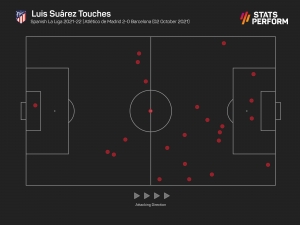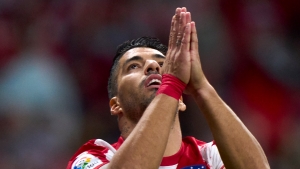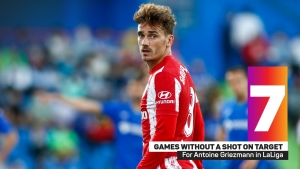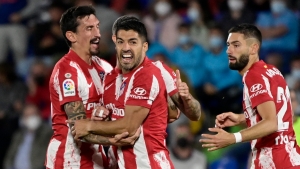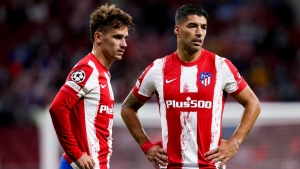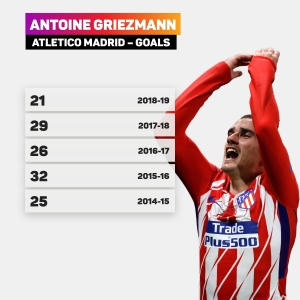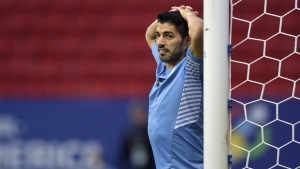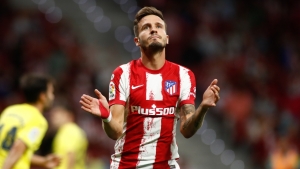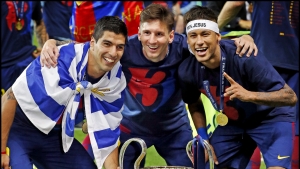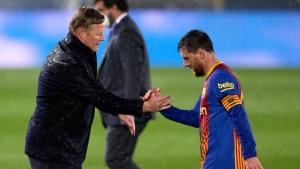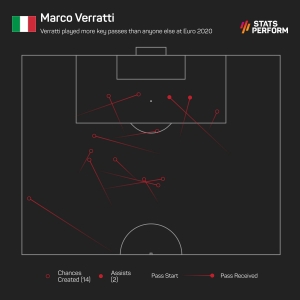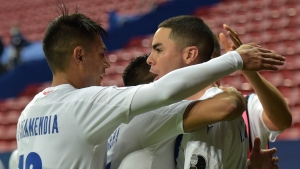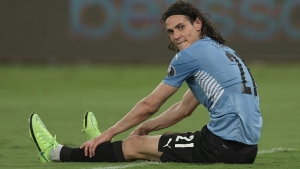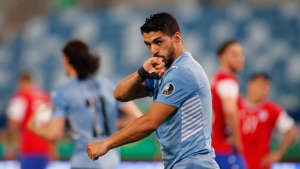For Paris Saint-Germain's Champions League rivals, the most daunting thing is that they have seen this all before.
Lionel Messi has been unveiled as the Ligue 1 giants' latest superstar signing, reuniting him with friend and former team-mate Neymar at the Parc des Princes.
As Barcelona did between 2014 and 2017, though, PSG have more besides the great Argentina and Brazil number 10s.
At Camp Nou, Luis Suarez arrived from Liverpool to quickly link up with his two fellow forwards and fire Barca to European glory.
This time, Kylian Mbappe, already at PSG, is the third man in a frightening front line.
On paper, it is a terrifying prospect, but can the PSG trio work together as Barca's famous 'MSN' did for three years?
Goals and assists galore
Across the three seasons Messi, Suarez and Neymar played together in Catalonia, the three players ranked first (149), third (128) and joint-sixth (89) for goal involvements in Europe's top five leagues.
Only four players registered both 30 goals and 30 assists in that period and three of them played for Barca. Cristiano Ronaldo, of course, was the other.
Barca and Ronaldo's Real Madrid accounted for six of the 10 highest-scoring LaLiga seasons by a team in the competition's history over the space of those three years.
Spanish football has never before or since been as exciting – and Messi, Suarez and Neymar (and Ronaldo) were at the forefront, pushing one another on.
In that time, Messi and Suarez combined for a goal every 198 minutes in the league (36 in total from 144 chances created together). Messi and Neymar between them created 2.1 chances for one another per 90 minutes, resulting in 22 assists, while Suarez and Neymar were also an effective combination with 26 assists.
Messi and Neymar had already had a single season together in 2013-14, so it was Suarez's seamless introduction that was most impressive. His 43 assists over those three years tied with Messi and trailed only Kevin De Bruyne (47).
This time it is Messi's turn to join an established duo, with Neymar and Mbappe setting an alarming standard in their limited time together on the pitch.
Injuries to Neymar have limited them to 3,552 minutes – less than half as many as Messi and Suarez over a longer period – but they have combined for 102 chances (2.6 per 90) and 21 assists (one every 169 minutes).
Missing the middle man
The similarities in this context are clear, but Mbappe and Suarez are very different players in a number of ways, including their positioning. Messi and Neymar have changed their roles since they first combined, too, and that is why this front three might require a little work at first.
In 2014-15, their first season together at Barca, the Blaugrana trio's touch maps told the tale of a balanced forward line.
A huge 60.1 per cent of Neymar's touches were on the left flank in the attacking half, with 33.4 per cent concentrated in an area just outside the box.
With the former Santos man staying left, Messi and Suarez were able to link up across the rest of the final third. Messi started from the right but took 22.5 per cent of his touches in the very centre of the attacking half, the same zone in which Suarez enjoyed 17.9 per cent of his touches.
Suarez, with 20.4 per cent of his touches on the left wing in the final third and 23.1 per cent on the right, was capable of drifting out to either side to create space but would rarely occupy these spaces for an extended period. That is a crucial contrast to Mbappe.
Mbappe last season took 57.9 per cent of his touches on the left flank in the attacking half, with only 11.6 per cent on the right. That left-sided share actually dwarfed Neymar's 46.3 per cent in the same position, indicating both their lack of playing time together and a slightly freer role for the world's most expensive player.
Indeed, the natural striker is the one of the three PSG forwards who uses the least of his touches through the centre. Messi, like Neymar, has become even more of a central figure since breaking away from the 'MSN' attack, last term taking 25.1 per cent of his touches in a central position just outside the box.
These touches speak to a fluid PSG approach, but they may need Mbappe to stretch the play down the middle and provide a focal point – something Suarez did that suits neither Messi nor Neymar.
Pressing from the front
Barca's front three of 2014-15 were not just brilliant in possession, they were also an effective force without the ball, winning it back to quickly get on the attack once more.
Luis Enrique's men allowed just 7.0 passes per defensive action (PPDA), not letting their opponents rest and forcing 370 high turnovers that contributed to starting their attacks 44.7 metres upfield on average.
PSG are starting from a slightly lower, if still impressive, base in a pressing sense this season. They allowed 8.9 PPDA and forced 337 high turnovers to start attacks 43.7 metres upfield on average.
It is likely Mauricio Pochettino, who employed a pressing game at Tottenham, will want to move up another gear in his first full season at the club, but that might be easier said than done with the players at his disposal.
In 2014-15, Messi led all LaLiga forwards in winning possession 37 times in the final third. Neymar (26) was second and Suarez (16) joint-11th. Across Europe's top five leagues, only Karim Bellarabi (also 37) could match Messi in this regard.
Messi has never since tallied as many final-third recoveries, with that rate of 1.0 per 90 now halved to 0.5 at the age of 34.
Neymar, in limited minutes, reached a new high by winning possession 1.3 times per 90 in 2020-21, yet his tackle rate of 0.9 is considerably down on 2014-15's high of 1.5.
Mbappe twice recovered the ball in the final third in PSG's opening league game of this season against Troyes and last year peaked with 23 such examples across the campaign, but they counted among 59 total possession gains – Messi and Neymar each passed 100 in 2014-15.
So, a revival of that devastating Barca press in Paris seems unlikely at this stage, even if Messi and Neymar, with a new partner, look primed to thrill again.
Whether the silky interplay is as effective without the other side of the game is a query that should be answered by May.























